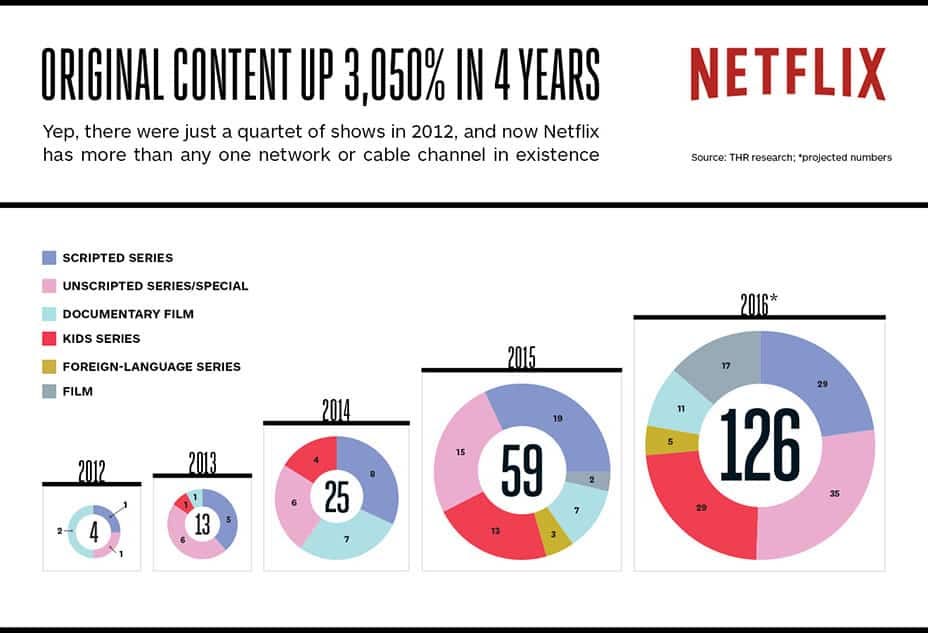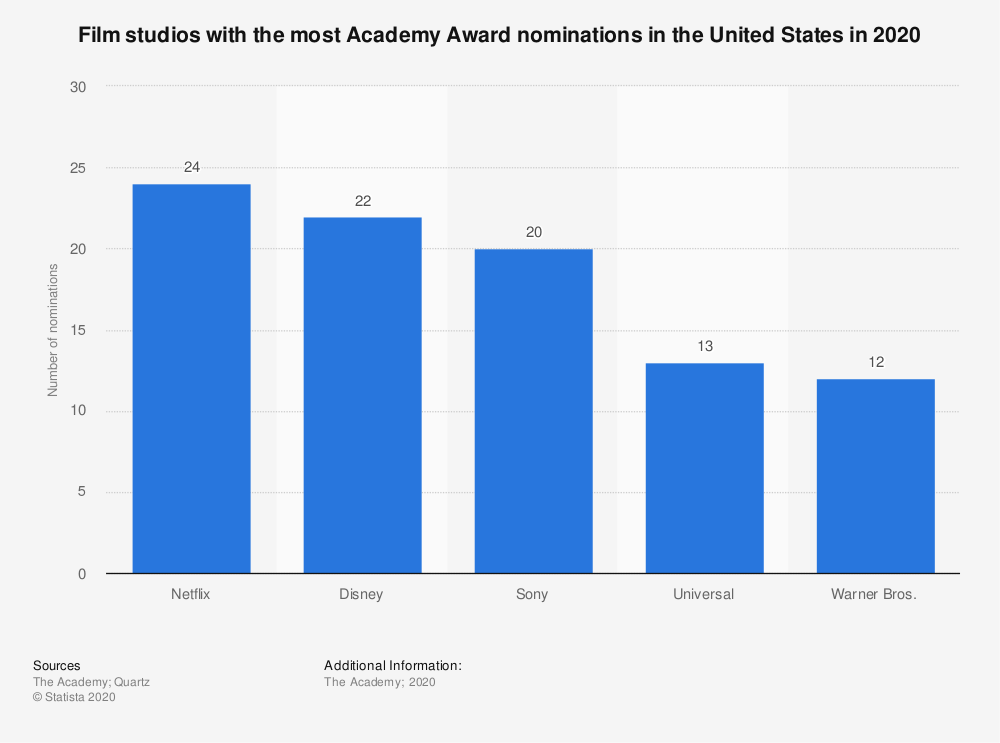Needless to say, Netflix is a powerhouse in the film and television industry. It dumps billions each year into new content, and a significant portion of its viewership comes from documentaries.
While documentaries can rarely compete against blockbusters at the box office, some of Netflix’s most successful content includes shows like “Making a Murderer” and “The Last Dance.”
In its first 10 days after release, “Tiger King” became the top title on Netflix after gaining over 34 million viewers in the U.S. alone. Obviously not every docu-series is that successful, but numbers like these were unfathomable in the documentary world a decade or two ago.
Looking at Netflix’s early years, much of that growth came from significant investment in original content. Back when the company was still carving out a place in the television industry, it was hungry to shell out funding for anything that could help establish it as a key player on the screens of people around the world.
[Source: The Hollywood Reporter]
Netflix’s investment in productions that might’ve been a hard sell for other distributors gave filmmakers and documentarians a new option for pitching and funding their projects.
Of course, things have changed since the early days of streaming original content. Netflix isn’t quite the wild west for new films and TV shows it used to be. It’s an established part of the industry with ambitions of total domination (or, you know, something dramatic like that).
But with a more selective process for picking new shows for investment, Netflix has also seen a boost in award nominations, including for its documentary content.
Netflix was nominated for 24 Oscars in 2020, more than any other studio, including a win for “American Factory” for Best Feature Documentary.
[Source: Statista]
And at this year’s International Documentary Awards, Netflix productions were nominated for a whopping 21 awards – again, more than any other studio.
It’s something that’s as obvious as it is outrageous: Netflix is dominating the entertainment industry.
It’s not just Netflix, though. Other streaming services, like Hulu, are making big inroads into the industry (while others, like Quibi… aren’t *womp womp*).
There’s probably plenty of studio executives clinging on to every dollar for fear of losing business in the face of encroaching competition, but documentarians have never had so many options to produce and distribute their projects.





